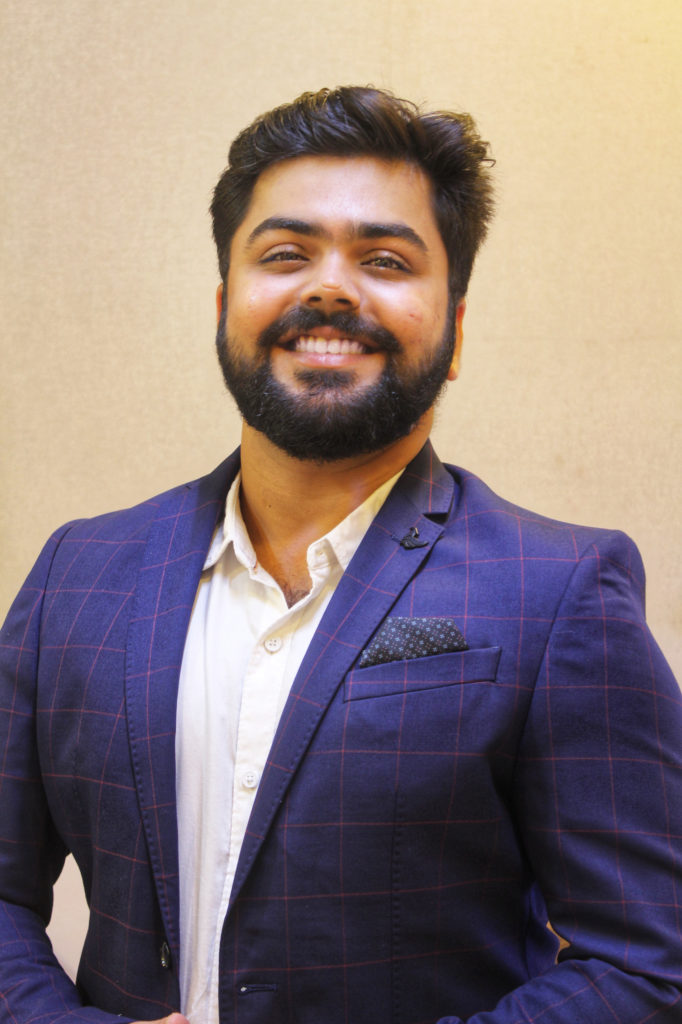How Nadit Khatri (MGB 2019) Transformed the Future of MSMEs
Nadit Khatri (Master of Global Business 2019) has always been a nomad and loves exploring his home country (India) and the world. Over the past few years, he biked to every district in India and travelled around the world to 5 different countries – all in an attempt to experience what the locals live like, their cultures and food, and the unique challenges that face them.
These travels and his multi-city business education are what helped Nadit transform the future of MSMEs in India. We caught up with Nadit to learn more about his story.

Q. You founded Pankh in 2019 as a revolutionary new platform for MSME businesses. What inspired you to build this platform? What is Pankh’s story?
Pankh was founded as an entity in October 2021. The ideation and work behind it began in 2019. Completing projects in APAC, the Middle East and the Australian markets and travelling around India during my breaks helped me interact with more than 100 businesses ranging from small firms to large MNCs. This helped me understand that businesses use different applications for each business process.
While exploring the switch between different applications for different processes, I learnt that MSMEs had been facing major difficulties in coordination (of how the work is being done, who’s making what decisions in the team) and collaboration in having these tools talk to each other. On the other hand, I could see that MNCs and large corporations were able to connect all the business tech tools they use under one platform where each employee had a single place to log in and where all business processes were in synchrony.
When I came back to India in 2019, my father (who runs a small distribution firm) asked me if I could find him an application that would let him have all his applications in one place, so he could run his business from home. While researching, I was unable to find a solution in the market and this need was reinforced even more at the onset of COVID-19.
Based on my experience and learnings, that’s when the question arose – why don’t I develop a well-suited easy-to-use platform that would help my father and other such MSME business owners connect with their applications easily? It would enable the business owner and their team to view, monitor, and run the business at ease and comfort through real-time sync, visualisation, and collaboration.
Today, we have completed the problem and solution idea validation and currently, we’re developing the first version of the product.
Q. You left behind a lucrative corporate career to invest in this venture. Have you ever regretted this decision? Why?
How could I ever regret having perused entrepreneurship, especially for a venture that has a direct impact on the world around me, including my father’s business?! Moreover, I am an action-oriented optimist who enjoys naturally diagnosing problems, collecting knowledge and crafting dynamic solutions. So, taking up leadership roles with an inquisitive nature is innate to me. Having said that, I believe this new venture and the path ahead (for me) is an entrepreneurial one that is driven by creating an impact on the world around me and living up to my purpose in life.
Q. What challenges did you face during the building phase of Pankh? How did you overcome them?
We are currently developing the application as we speak. Developing the problem and the solution idea validation had been conducted for the last 18 months to understand the daily difficulties faced by the MSMEs in India and abroad.
We faced 2 major challenges – the Proof of Concept for the technology and building awareness among business owners about how this technology can help solve their long-term and short-term problems.
Q. Do you think your Master of Global Business (MGB) experience at SP Jain helped you build the skills needed for this entrepreneurial venture?
Oh absolutely! No doubt about that. The MGB program was one of the primary building blocks that showed me the corporate side, development of business skills, exposure to different kinds of industries, business models, markets. It helped me understand what businesses are about, and how culture takes an impact on markets. The MGB program is quite holistic, and I am grateful for that. I joined the program without any business background and in just 16 months, the program helped me gain an understanding of almost every aspect of a business. I touched upon all concepts of finance, supply chain, logistics, marketing, sales, and analysis with an amazing curriculum and an even better faculty.
The program also inculcated leadership, communication, and negotiation skills. The Student Board Room aka SBR assignments and global projects with real-time experiences were my favourites. These weekly engaging and insightful team assignments intrigued not only out-of-the-box thinking but also creatively pushed us to connect with industry experts for a thorough knowledge on the domains.
The Master of Global Business program provides exposure at its best. The networks built over time and knowledge gathered has not only helped me in my work but also helped to leverage an international outlook to the markets in general. This allows a broader scope of job opportunities and creates a foundation to establish oneself as a global businessperson. This program is the right mix of theoretical and practical, generating capable global leaders in just 16 months.
Q. The Indian Government recently announced the Union Budget 2022. How do you foresee MSMEs in India being affected by this budget?
Union Budget 2022, in my perspective, takes a futuristic approach. It is in sync with the shift of the traditional business models to those of platforms wherein the budget additionally supports the movement towards digitisation of the multiple processes, especially on the payments end. With the introduction of the Central Bank Digital Currency (CBDC), Emergency Credit Line Guarantee Scheme (ECLGS) and Promotion of Digital Banking, I think the Union Budget 2022 would prove to be positive for my organisation.
The capping of the Long-Term Capital Gains payable on capital assets at 15% has a direct positive impact on the investors. This, in turn, helps the start-up ecosystem to thrive so much more in comparison to an ecosystem where the maximum surcharge could reach up to 37% earlier. Supporting the Venture Capital and private equity sectors is just promoting start-ups to thrive more.
Q. Where do you see yourself and Pankh in the future? How do you think Pankh will transform the MSME space in the next 5 years?
I see myself creating an impact in simplifying and untangling Business Process Management for businesses in general whilst Pankh does so by bringing accessibility, apprehension and affordability of BPM among the MSMEs.
In the next 5 years, this would enable the new concept of the ‘ease of running a business’ along with remote operations, automation, better supply-demand predictions and more cash flow for the MSMEs. After all, cash flow is the blood flow of these business owners.
Businesses will now be able to run from anywhere and at any time with ease. There would be absolute coordination among their employees and superior collaboration with their customers, inside of the B2B space, allowing a higher model of a supply chain which is more coherent, resilient and digital.
Click here to read more articles from SP Jain Alumni Community!
Related Posts
-
 In This World of Internationalisation, Will You Survive?
No Comments | Jul 27, 2011
In This World of Internationalisation, Will You Survive?
No Comments | Jul 27, 2011 -
 Key to great interviewing
No Comments | Aug 19, 2011
Key to great interviewing
No Comments | Aug 19, 2011 -
 The Perks of Having a Global Network
No Comments | Oct 30, 2014
The Perks of Having a Global Network
No Comments | Oct 30, 2014 -
 Breaking corporates shackles to start a wealth management boutique
No Comments | Feb 18, 2015
Breaking corporates shackles to start a wealth management boutique
No Comments | Feb 18, 2015
